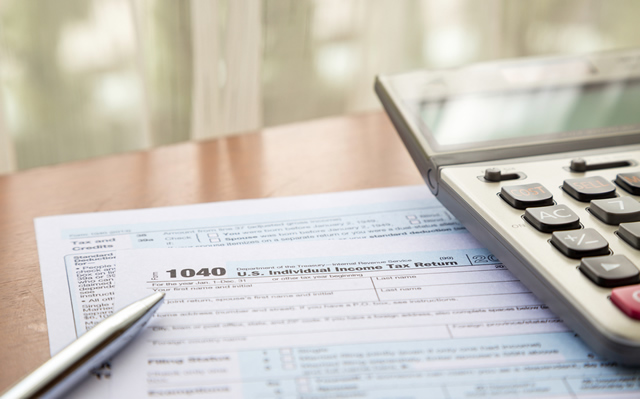When you owe back taxes or otherwise have not paid your tax bill, then the IRS can impose a tax levy on your assets. This is a collection action where they seize property for the value of the tax debt in order to be repaid. If you have received a notice from the IRS that they plan to enact a levy, then you might be wondering what they can seize, as well as what actions you can take.
Assets that Can Be Seized
The IRS has the right to seize almost any asset, including sources of income, you may have. Many people may be familiar with a wage garnishment, which is a special type of levy imposed on your salary or wages. However, the IRS has the right to seize sources of income beyond just your wages, including retirement accounts, bank accounts, dividends, rental income, commissions, licenses, accounts receivable, and the cash loan value of your life insurance.
In addition to taking your sources of income, they can also take any physical assets you may have, which could include your house and car. If you have any other items of value, such as art, jewelry, a boat, a plane, investment property, and other property that could be sold to pay off your tax debt, the IRS could potentially seize it and sell it to take care of your tax debt.
What Cannot Be Seized
It is much easier to make a list of the items the IRS cannot seize during a tax levy, as it is a much shorter list, and includes items they deem as necessary for living. The IRS is prohibited from taking necessary clothing and schoolbooks. Additionally, they cannot take any fuel, provisions, furniture, personal effects, and livestock unless its value exceeds $6,250. You can also keep books or tools of your trade up to $3,125 in value. If your tax debt does not exceed $5,000, then any property used as a residence, whether personal or rental, is exempt.
In addition to certain property being not liable for seizure, there are also some forms of income that are exempt. If you receive any unemployment benefits, certain annuity or pension payments, workmen’s compensation, certain service-connected disability payments, certain public assistance, or assistance under the Job Training Partnership Act, then you will be able to keep those sources of income. Any child support is also exempt. A certain amount of your income and bank accounts, which has been designated as necessary for living based upon your filing status and tax deductions, is also exempt. Other than the items on this list, the IRS has the right to take any and all property, both personal and real, that you may own that has monetary value.
What to do when you Receive Notice of a Tax Levy
When you receive notice from the IRS that they intend to impose a levy on your assets, then you need to take action right away and pay off your tax debt. If you cannot afford to pay the entirety of the amount you owe, you can apply for a tax debt relief settlement, such as an Offer in Compromise or Installment Agreement, to remove the levy and find a way to settle your tax debt. Dealing with the IRS can be scary and difficult. Working with a tax professional provides you with the guidance and support you need during this tough time. They will help you to find the right solution for paying off your tax debt and help the IRS to remove the levy on your assets so that you do not lose your house, car, or any other property.
[one_full last=”yes” spacing=”yes” center_content=”no” hide_on_mobile=”no” background_color=”” background_image=”” background_repeat=”no-repeat” background_position=”left top” border_size=”0px” border_color=”” border_style=”” padding=”” margin_top=”” margin_bottom=”” animation_type=”” animation_direction=”” animation_speed=”0.1″ class=”” id=””][tagline_box backgroundcolor=”” shadow=”yes” shadowopacity=”0.7″ border=”3px” bordercolor=”” highlightposition=”left” content_alignment=”left” link=”/case-review/” linktarget=”_self” modal=”” button_size=”” button_shape=”” button_type=”” buttoncolor=”” button=”Get Tax Help” title=”Let Fidelity Tax Relief Help” description=”Our experienced agents can help resolve your tax issues.” margin_top=”” margin_bottom=”” animation_type=”0″ animation_direction=”down” animation_speed=”0.1″ class=”” id=””][/tagline_box][/one_full]


